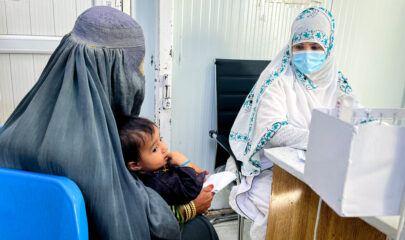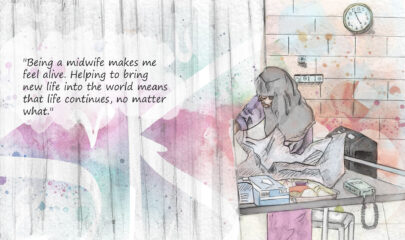Mental healthcare in Ukraine
Doctors Without Borders’/Médecins Sans Frontières (MSF’s) mental health program is a key component of our response to the war in Ukraine. MSF psychologists conduct sessions not only for patients, but also for Ministry of Health (MoH) doctors, helping healthcare staff to cope with the horrors of war.
The constant bombardment of frontline areas in the east, south and northeastern parts of Ukraine, where MoH doctors work, means they are always working in a state of emergency. In mass casualty events, doctors frequently tend to patients experiencing enormous grief, including those who suffer wounds after missile shelling. Add to this health workers’ personal challenges and experiences during the war, and it all takes a toll on their mental health.
“In the first phase of the war, MoH doctors and psychologists worked themselves to exhaustion,” says MSF psychologist Alisa Kushnirova, who supervises a team of mental healthcare professionals working in the Kherson, Mykolaiv and Kirovohrad regions. “No one thought about taking care of themselves and their mental health, so people were exhausted and burned out. That’s why MSF launched a project to provide psychological support to the medical staff – to guarantee care for caregivers in the hospitals we supported.”
MSF psychologists have conducted a series of group and individual sessions for doctors, helping them to develop mechanisms for recovery and rest, work through their personal concerns and – most importantly – learn not to suppress their emotions.
Working with people who have experienced occupation, displacement, injury, violence and loss of home and loved ones can cause medical staff to accumulate emotions in excess. “The psyche is like a sponge: it absorbs all the information from patients, but it cannot process and squeeze it all out on its own. So if you want to cry and scream – you have to do it,” says Kushnirova. “The ability to recognize and release such emotions is a great strength.”


